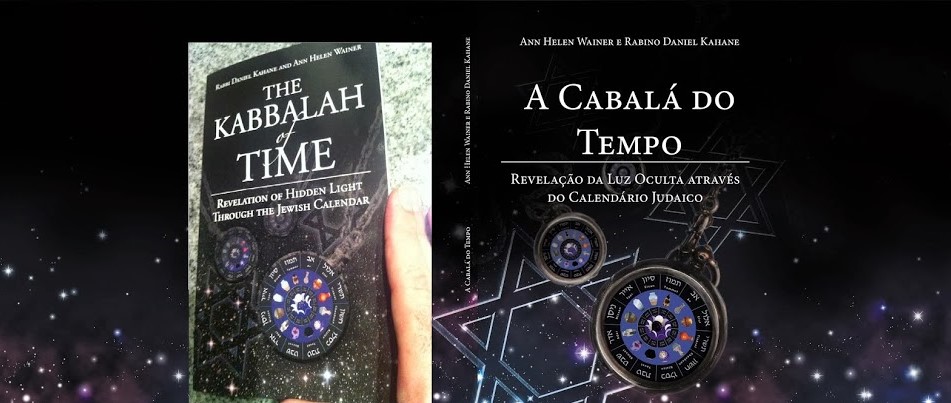The hen is saying, "He gives bread to all flesh,
for His kindness endures forever." (Psalms 136:25)
[Rabban Gamliel’s] son, Shimon, would say: All my life
I have been raised among the wise, and I have found nothing better for the body
than silence. The essential thing is not study, but deed. And one who speaks
excessively brings on sin.
Gevurah shebeChesed (discipline and judgment within
the context of kindness)
In the
second week of the Jewish year, the week of Yom Kippur[1](the
“Day of Atonement”), it is the turn of the hen in Perek Shirah to sing of G-d’s
eternal kindness, for providing food for every living being. It is during this
time of the year that G-d determines specifically how much sustenance each
being will receive, but also who will live and who will not. Many people may
not know this, but eating well on the eve of Yom Kippur is considered to be as
meritorious as the fast itself.
There is
also an important parallel here: It is exactly in this second week, on the eve
of Yom Kippur, when we are busy asking each other for forgiveness, that the
Jewish people make Kapparot, an ancient custom where each individual
symbolically atones for one’s sins before G-d through the means of a hen! After
the ritual is performed, each chicken is slaughtered and given to families in
need. Nowadays, many have the custom to use charity money in order to fulfill
this ritual. Before Yom Kippur, we also have the custom to ask each other for
forgiveness.
The Pirkei
Avot of this week contains the recommendation of Shimon ben Rabban Gamliel:
"All my life I grew up among the Sages, and found nothing better for the
person [literally, the body] than silence; it is not to study, but rather
action which is of the essence… one who talks too much brings forth sin"
(I:17). In order to properly receive and absorb the words of others, one must
first be silent.
Furthermore,
the "silencing" of the body, appears to be a clear reference to the
fasting that takes place on Yom Kippur, as well as other actions such as not
wearing leather shoes, anointing ourselves (using perfumes or lotions), having
sexual relations – preventing all these things on Yom Kippur is a way to
distance ourselves from physicality and be very close to G-d, like angels, even
if only for a single day. Yom Kippur is also a day of reflection and
introspection, for which silence is an important virtue.
We saw that
the Pirkei Avot of week number one focuses on acquiring a single main teacher.
In this week, we speak about learning from“sages,” in the plural. While the
number one relates to unity, two represents the concept of multiplicity.
These two concepts are not contradictory – they complement each other. One can
still have a single main teacher, while still learning from every person. In
fact, as we will see in week 30 of Pirkei Avot, that Ben Zoma states that to do
so is a sign of true wisdom.[2]
On Yom
Kippur, we also focus on fact that the main thing that G-d values is our
actions. One of the high points of this holy day is the reading of the Book of
Jonah, which in turn has as its climax the following verse: "And G-d saw
their actions ... and G-d reconsidered the evil which He had spoken to perform
against them, and He did not perform it." [3]
In the
second week, the sefirah combination is gevurah shebechesed, discipline and
judgment within the context of kindness. During the fast of Yom Kippur, the
Jewish people act with discipline, willpower, and self-control. We do so while
begging our Creator for mercy and protection, knowing that G-d is just and
kind.
This week, a
lesson in self-improvement we draw from Perek Shirah is that even the hen
recognizes that God nourishes all living beings. After getting out of bed, as
we learned from the rooster, the next step in combating sadness is to take
proper care of ourselves, eating properly and exercising.
[1] Erev Yom Kippur always falls on the second week of the year, but in certain years, the day of Yom Kippur itself falls on the first day of Week Three. This is the only exception for all dates described in this book.
[2] Chapter
IV:1
[3] Chapter
3:10. Jonah in Hebrew means “dove,” the animal in Perek Shirah for Week Three.
[Gematria Thought: The number
one is somewhat lonely, but once another one is added they make a pair, just
like the rooster and the hen. The number two also represents the two tablets
containing the Ten Commandments (Luchot HaBrit). While one tablet contains laws
regarding our relationship with G-d, the other tablet contains laws regarding
relationships between human beings. It was precisely on Yom Kippur that the
tablets were given for the second time for the Jewish People. The number two
represents the concept of relationship, as well as the idea of giving and
receiving.]

No comments:
Post a Comment